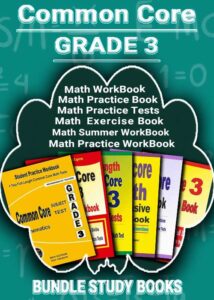
Study Time: 2minutes
How to Stay Calm and Confident During a Math Test?
Many students find math tests intimidating, feeling pressure to perform well and fearing mistakes. This anxiety can undermine their confidence. However, with the right strategies and mental preparation, students can tackle math tests with a sense of calm and confidence. This article delves into techniques for managing stress, building confidence, staying relaxed, preparing mentally, and reducing anxiety—helping students excel in their math exams.
1. Prepare Thoroughly
The key to confidence during a test is thorough preparation. Spend time reviewing the material, practicing problems, and understanding key concepts. The more prepared you feel, the less anxious you will be. Focus on problem areas well in advance of the test day.
2. Practice Under Test Conditions
Simulate the test environment while practicing. Time yourself, work in a quiet space, and avoid using notes or resources. This helps you get used to solving problems under pressure, making the actual test feel more familiar and less intimidating.
3. Develop a Study Routine
Consistency is important when it comes to studying. Develop a study plan that includes regular review sessions leading up to the test. Breaking the material into smaller, manageable chunks reduces last-minute cramming and increases retention.
4. Get a Good Night’s Sleep
Sleep is crucial for memory and focus. Aim for at least 7-8 hours of rest the night before the test. Being well-rested helps you think more clearly and reduces stress levels, making it easier to handle challenging problems.
5. Stay Positive and Visualize Success
A positive mindset can boost your confidence. Visualize yourself doing well on the test and approach each problem with optimism. Positive affirmations like “I can handle this” or “I’ve prepared for this” can counter negative thoughts and self-doubt.
6. Take Deep Breaths to Stay Calm
When you start feeling anxious during the test, pause for a moment and take deep breaths. This helps calm your nervous system and allows you to refocus on the task at hand. Inhale deeply through your nose, hold for a few seconds, and exhale slowly.
7. Read the Instructions Carefully
Before diving into the questions, take a few moments to carefully read the instructions. This ensures you understand the format and expectations of the test, which can prevent unnecessary mistakes and confusion.
8. Start with Easier Questions
Begin with the questions you find easier to build momentum and confidence. This strategy helps you save time and avoid getting stuck early on. As you complete more questions, your confidence will grow, making it easier to tackle the harder problems later.
9. Use Time Management Techniques
Pace yourself throughout the test. If a problem seems too difficult, move on and return to it later. Spending too much time on one question can increase stress. Manage your time by setting small goals for each section of the test.
10. Double-Check Your Work
If time permits, review your answers before submitting the test. This gives you a chance to catch any careless mistakes or miscalculations. A second glance can often lead to simple corrections that boost your score.
11. Stay Focused on the Present
Try not to worry about the overall outcome while taking the test. Focus on one question at a time and stay present. Thinking too far ahead can increase anxiety, while concentrating on the current problem keeps you calm and in control.
12. Accept That You Won’t Know Everything
It’s normal not to know every answer on a test. If you encounter a particularly tough question, don’t panic. Focus on solving what you can and move on. You can always revisit difficult questions later with a clearer mind.
13. Stay Hydrated and Take Breaks if Allowed
Staying hydrated keeps your brain functioning optimally. If you’re allowed breaks, use them to stand up, stretch, and clear your head. This can recharge your focus and reduce tension.
14. Trust Your Preparation
Finally, trust the effort and preparation you’ve put into studying. Confidence grows when you remind yourself of the work you’ve done. Trust that you are ready and capable of doing your best.
By following these strategies, you can manage test anxiety, remain calm, and approach your math test with confidence, increasing your chances of success.


